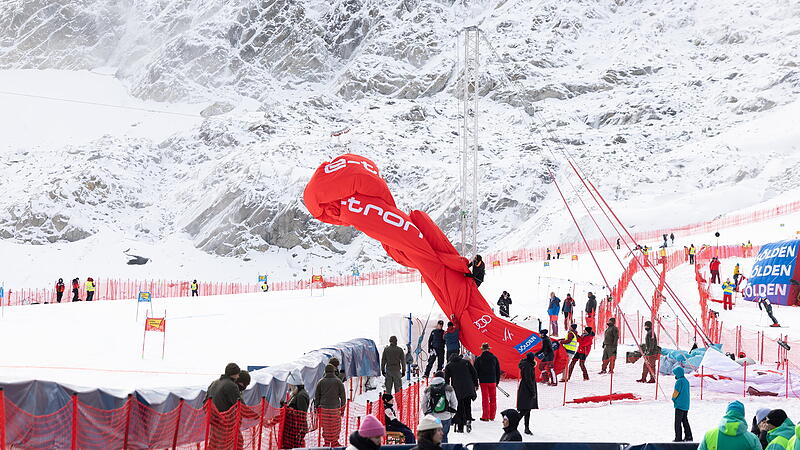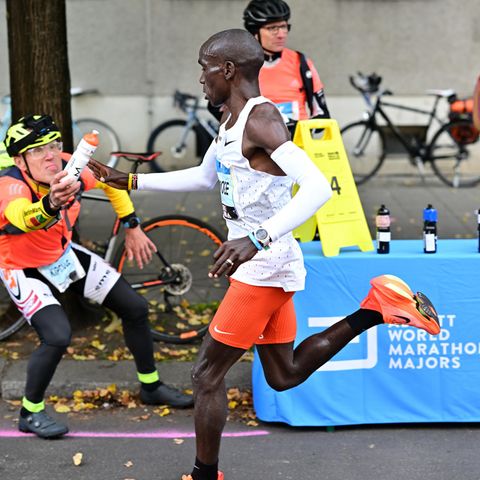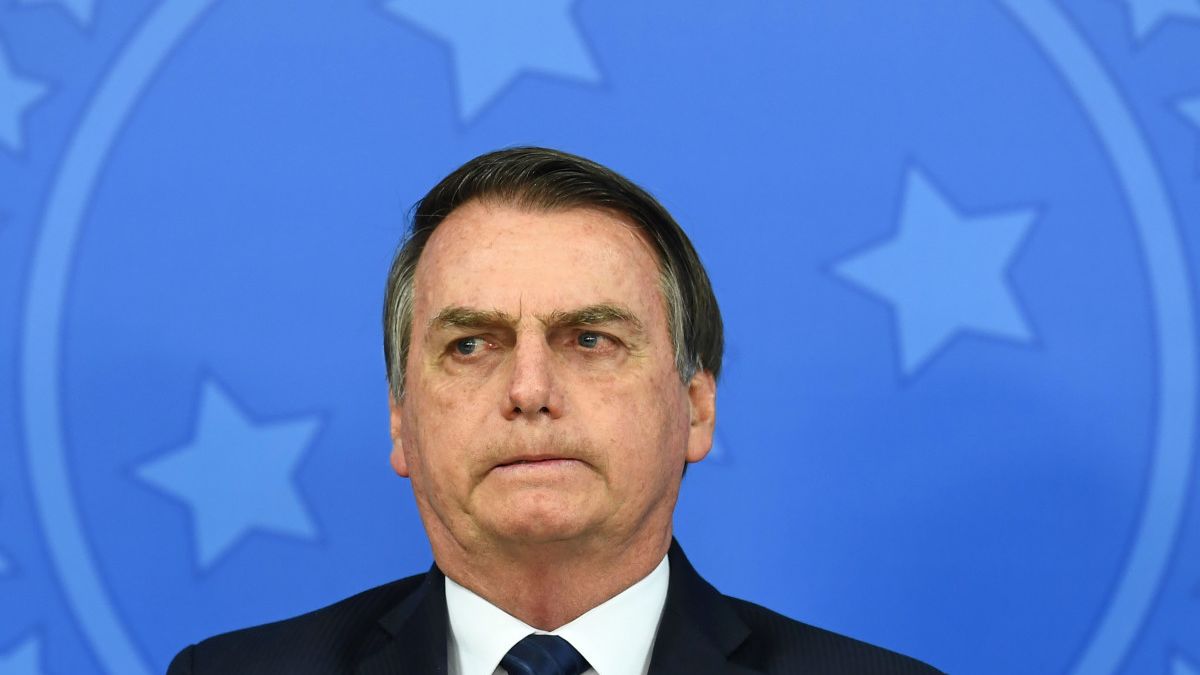Image: EXPA/JOHANN GRODER (APA/EXPA/JOHANN GRODER)
The controversial October date is more shaky than ever, FIS and ÖSV are playing the verbal one-two. The ÖSV men, led by Marco Schwarz, were convincing in terms of sport. Nine lessons and excitement from Sölden:
Good luck and bad weather: The heated debate about the early ski start was cooled by the images of freshly snow-covered peaks. According to official information, 30,200 visitors streamed into the World Cup arena at a height of over 3,000 meters. The organizers were pleased with the best advertising, which was marginally marred by the cancellation of the men’s race due to gusts on Sunday. The recent record does not speak for weather stability: of the last seven Sölden weekends, only three were carried out as planned, and there was at least one cancellation four times.
FIS confusion: World Association President Johan Eliasch was first conspicuous by his absence and then surprised everyone with a comment from afar. “I also don’t understand who is interested in ski races in October and why we ski on glaciers without snow. I hope that the ÖSV is open to moving it back,” said Eliasch in an ORF broadcast. As is well known, calendar design is the territory of the association that Eliasch heads. The ÖSV emphasizes its willingness to talk and announced an evaluation.
Sölden self-confidence: For 30 years, the Ötztal ski resort has been chosen to boost business for the ski industry and tourism with wintry images in October. Jakob Falkner, the head of the organizing committee and Sölden’s top cable car manager, made it unmistakably clear in the discussion about the event date: “We want a ski opening, a ski festival in the future too! We want something clever, or we’ll leave it.”
Scapegoat on skis: Many alpine stars have recently found themselves at the mercy of unjustified criticism for their career choice due to the climate debate. The ÖSV leadership and Sölden spoke of half-truths circulating and emphasized that there is an economic perspective in addition to the ecological one. The tenor: Winter sports in Austria are an economic factor, and it’s also about jobs.
- More on the topic: Stormy times for the Alpine Ski World Cup
- Wind as a spoilsport: Sölden giant slalom canceled when ÖSV was in the lead at half time
Climate activism: The “Last Generation” uses Sunday to draw attention to their concerns. The high mountain road to the Rettenbachferner was blocked for a short time. “Fridays for Future” also started in the finish area of the arena with the permission of the ÖSV. Greenpeace Austria, however, renewed its criticism of the season’s organization. “The responsibility for the racing calendar lies with FIS President Eliasch. He must adapt the start of the season to the climate crisis and postpone it further into the winter,” said the NGO. The races could only have taken place at this early date with luck.
Rockstar resigned: Lucas Braathen shocked the ski world with his immediate end to his career. In the ongoing sponsorship dispute with Norway’s association, the 23-year-old slalom shot winner decided on the ultimate cut. With the nonconformist athlete, the World Cup is losing a driving force in the young audience segment. “The rock star among alpine skiers gave up,” the Kronenzeitung rightly commented.
Stopped halfway
ÖSV performance: Marco Schwarz was thwarted halfway to the home win. The ÖSV star’s interim lead wasn’t worth any points due to the race cancellation, but it was worth a lot of self-confidence for the Carinthian. Equipped with more muscle mass than last year, the all-rounder also excelled in flat pieces. Zermatt/Cervinia will show whether Black can also stand up to Marco Odermatt on the downhill. The men presented themselves strongly as a collective, but there was no noticeable improvement among the women under new head coach Roland Assinger. Franziska Gritsch couldn’t get any better than tenth place.
Winner with message: While Mikaela Shiffrin surprisingly missed the podium in sixth place, Lara Gut-Behrami showed great early form. Without a mistake in the first run, the Swiss would have won by more than 0.02 seconds ahead of Federica Brignone. The winner then surprised everyone with her openness. “I’m on my period right now, I feel catastrophic.” After Shiffrin, the next prominent ski racer spoke in detail about the taboo topic of menstruation.
Messy: The new ban on fluorine wax is taking effect, and the ski aces’ fear of disqualification was justified. The Norwegian Ragnhild Mowinckel was disqualified because the fluorine level on her skis was too high. Their supplier, Head, could not explain the violation. Research into the causes was started. There is still no trace of a waterproof protocol; the wax topic will travel with the ski circus as the sword of Damocles. Next stop: Zermatt/Cervinia (men’s downhills) and Levi (women’s slaloms) on November 11th and 12th.
more from Alpine skiing
Wind as a spoilsport: Sölden giant slalom canceled when ÖSV was in the lead at half time
Ski start: Odermatt as a benchmark – Schwarz hopes for an early aha experience
Neureuther zu Braathen: “I would marry you”
FIS boss: “I don’t understand the early start in the Ski World Cup”
: Nachrichten
I am Pierce Boyd, a driven and ambitious professional working in the news industry. I have been writing for 24 Hours Worlds for over five years, specializing in sports section coverage. During my tenure at the publication, I have built an impressive portfolio of articles that has earned me a reputation as an experienced journalist and content creator.




